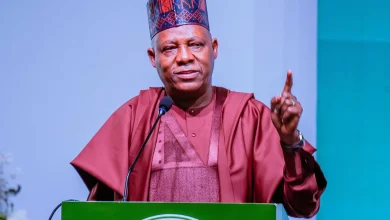Lead
ECOWAS moves to harness AI use in West Africa

The ECOWAS Parliament has opened deliberations on Artificial Intelligence (AI) and its impact on governance, peace, and security across West Africa.
Speaker of the Parliament, Mrs. Hadja Ibrahima, declared open the second Parliamentary Session on Monday in Port Harcourt.
The seven-day session is themed “Harnessing Artificial Intelligence for Parliamentary Efficiency, Ethical Governance and Development in the ECOWAS Region.”
Mrs. Ibrahima said AI was no longer fiction but a transformative reality reshaping societies, economies, and public institutions worldwide.
She highlighted AI’s potential to strengthen legislative research, improve transparency, and deepen engagement across the ECOWAS region.
“However, this new power also raises ethical challenges, including disinformation, which undermines public trust, erodes democratic debate, and fuels tensions,” she warned.
She described AI as a “new geopolitical weapon,” noting global competition for dominance in its use was intensifying.
According to her, visionary leadership is required to ensure AI’s benefits are fairly distributed among member states.
“Legislators must consider how AI can serve democracy rather than threaten peace, security, or equity within the region,” she said.
Ibrahima said the session would foster reflection, responsible adoption, and a regulatory framework balancing innovation with human rights and democratic values.
She acknowledged insecurity, terrorism, climate disruption, and economic fragility in the region, urging ECOWAS to accelerate its integration and cooperation.
The speaker announced Parliament’s support for dialogue with Burkina Faso, Mali, and Niger towards their reintegration into the bloc.
She reminded member states that ECOWAS was funded through a 0.5% levy on extra-regional imports and urged them to meet obligations.
Sen. Baru Jibrin, First Deputy Speaker and Leader of the Nigerian Representatives at the ECOWAS Parliament, said AI was already shaping governance and economies globally.
He stressed AI’s opportunities must be harnessed to improve efficiency, accountability and sustainable development within the region.
“Nevertheless, AI presents ethical, legal and societal challenges that cannot be ignored,” Jibrin said.
He urged legislators to interrogate risks and propose concrete strategies for responsible and ethical AI use across West Africa.
In his remarks, Nigeria’s Minister of Foreign Affairs, Yusuf Tuggar, reaffirmed Nigeria’s support for regional efforts to harness emerging technologies for inclusive development.
He recalled that the Federal Government had launched a national AI Strategic Framework covering education, data governance, innovation, and security.
Tuggar said the framework safeguarded human rights, data, career, privacy, sovereignty, and national security, while aligning with ECOWAS goals for ethical, people-centred AI governance.
“Therefore, it is important that legislators enact model laws and build national capacity for digital governance, ensuring women, youth, and vulnerable groups are not excluded,” he urged.
Gov. Siminalayi Fubara of Rivers described AI as the most transformative technological revolution in human history.
Represented by his deputy, Mrs Ngozi Odu, he urged the parliament to establish frameworks for technologies evolving faster than legislative processes.
“We must ensure AI serves democratic governance rather than supplanting it,” Fubara said.
The governor called for domestication of AI to reflect cultural and governance structures unique to each country.
“The AI model that works in one country may not work in another unless tailored to local realities,” he said.


